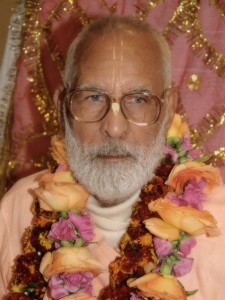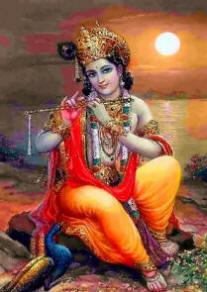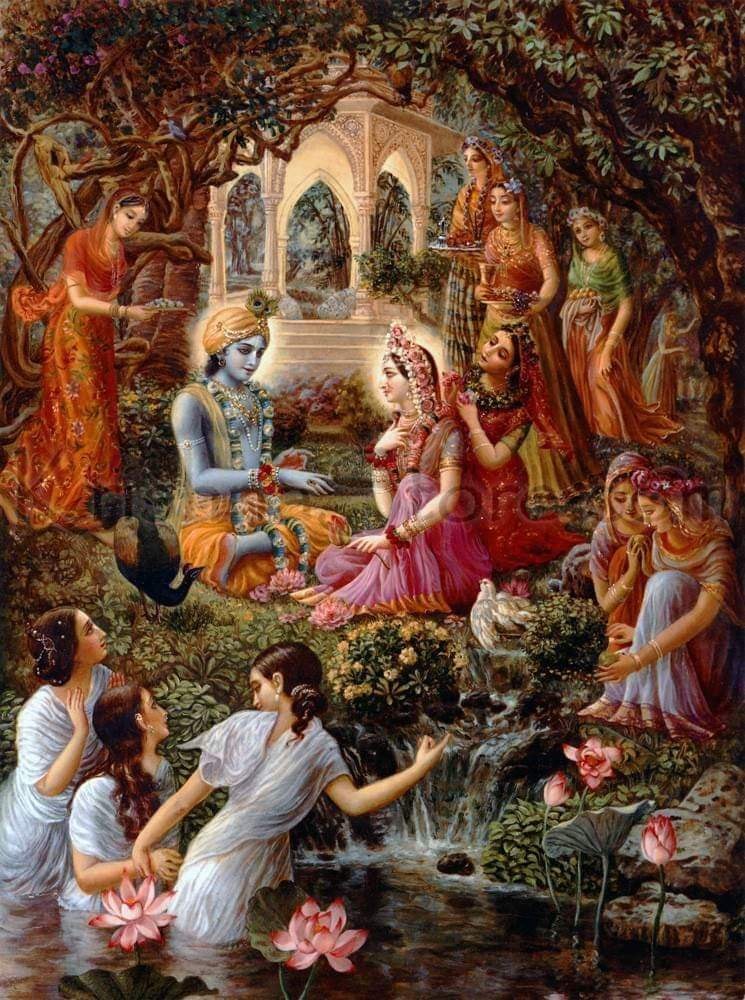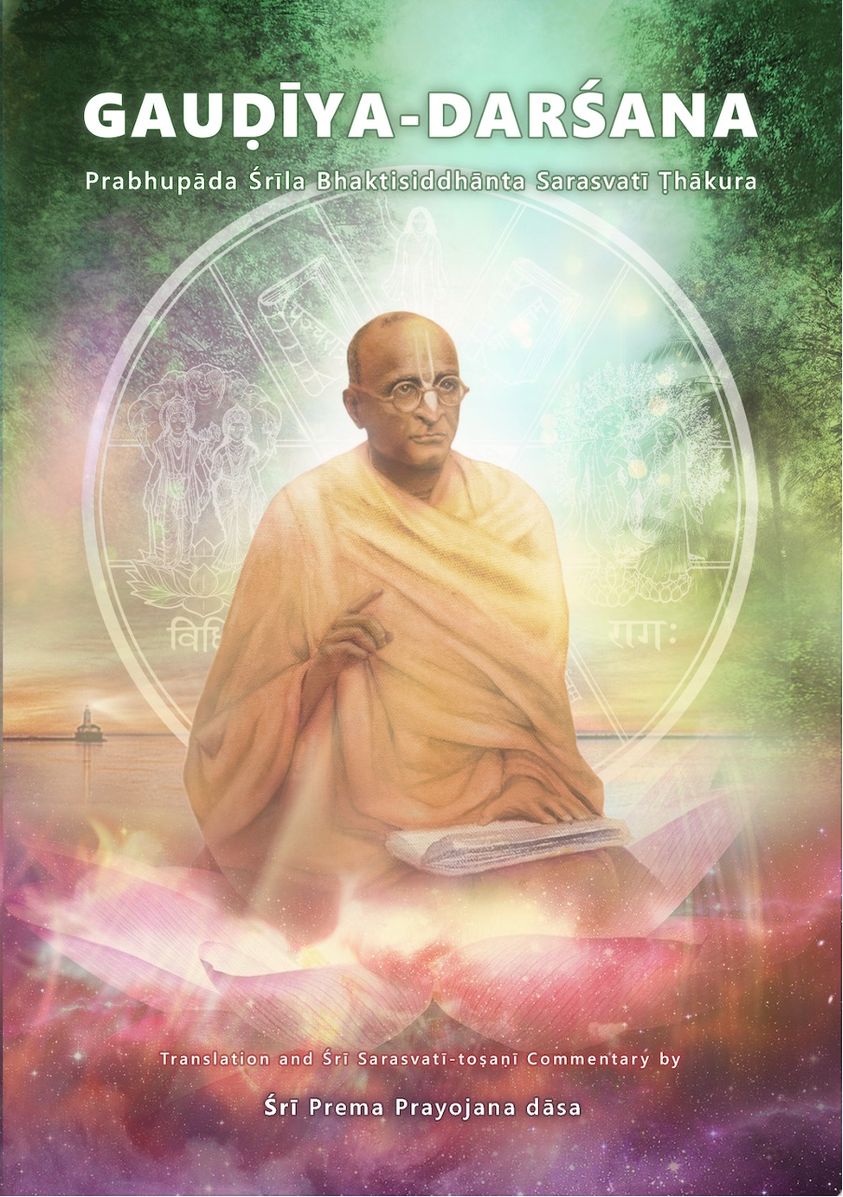
Srila Bhaktivedanta Narayana Maharaja
By Srila Bhaktivedanta Narayana Maharaja
We trust various persons of authority to inform us about material subject matters, but whom shall we trust in regard to transcendental subject matters and the transcendental world? We cannot experience transcendence with any of our material senses. How then, can we have an idea of that pure reality? We can see the body, but not the soul. How can we verify that there is a soul beyond matter? Though God is everywhere, we don’t see Him. How then, can we determine who is God?
Although it is evident that we cannot control the world, how can we trust that there is a God from whom this creation has come, and how can we be confident that it is He who controls it? Millions of people are born daily, and millions also die. Who controls this overwhelming tide of birth and death? Sea waves come on schedule, the sun appears on schedule, and new days come with continuous regularity.
We do not control those rhythms, yet somehow, everything is maintained. Our senses are imperfect, and therefore it may not be possible to trust the information given by them. Our eyes cannot even see the underside of the eyelids, the closest thing to them, what to speak of seeing inside our body, and more significantly, the soul within the body. Our material senses of seeing, hearing, and touching have some abilities, but they are extremely limited. Therefore, especially regarding transcendental subject matters, we can trust neither the imperfect senses nor the authorities who rely on those senses to formulate their conclusions.

Krishna The Supreme Lord says: “It should be understood that all species of life, O son of Kunti, are made possible by birth in this material nature, and that I am the seed-giving father.” BG.4.4
Pragmatists say that we can trust only what we can see, but factually there are many instances wherein we trust as reality that which is beyond our own vision. For example, once I was on a train with my Gurudeva, and a railway officer approached him. “Do you believe in God?” he asked. Gurudeva replied, “Yes.” The officer said, “I don’t believe in God, because I can’t see Him. I only trust what my eyes can see.”Gurudeva replied, “This is not true. You believe many things you have not seen. Can you say who your father is?” The officer said, “Yes,” and told him the name of his father.
Gurudeva asked, “How do you know he is your father? Do you have any proof?” Realizing that he had no proof, the officer felt uncomfortable and became somewhat restless. His mother had told him, “Here is your father,” and on this ‘evidence’ he would say, “He is my father.” If our mother is lying, we have no other recourse; we trust that our mother will not deceive us. The officer then asked him, “Who is God?” Gurudeva replied, “Kåñëa is the Supreme Personality of Godhead.” The officer asked, “Why do you say that? In what way is He God?”
Gurudeva replied, “Some persons say that God has no form, attributes, or qualities, but the Vedic scriptures tell us that He has a form and many qualities. If He has no form, then from where did this world manifest? The world is replete with an endless diversity of forms. ‘Something’ cannot come from ‘nothing.’ Therefore, God must have a form, and His form must be the most beautiful. There is no one as beautiful or full of worthy qualities as He. For example, He can generate, regulate, and destroy the entire material world in a moment. He can create millions of worlds, suns, and moons within a second, and it is thus certain that He is all-powerful; we cannot do as He does. Moreover, He is extremely merciful. Otherwise, how can He know our difficulties, sorrows, and sufferings, and how can He help us? He is the embodiment of love and affection. If He were not so, if He were not able to love us and help us in our miseries, what would be the need of that God?”
From the Introduction of the Book
Journey of The Soul by Bhaktivedanta Narayana Maharaja
Free Download

 Posted in
Posted in 







